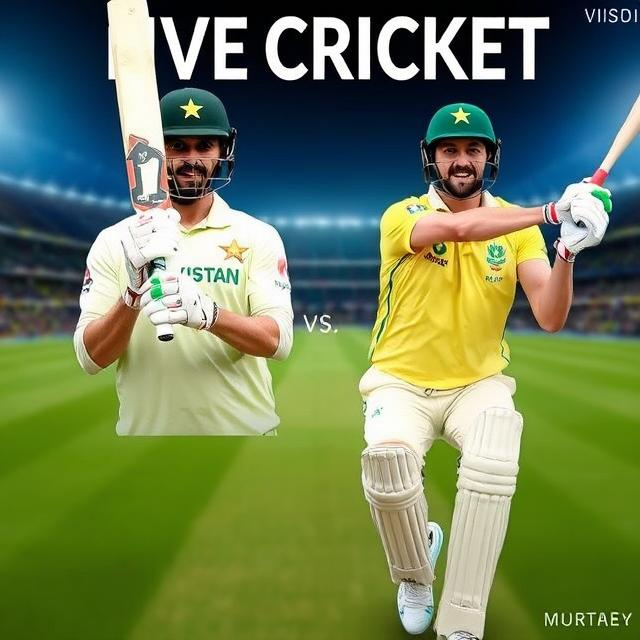Ricky Ponting’s Latest Statement on the Pakistan Cricket Team Sparks Debate

Ricky Ponting’s Latest Statement on the Pakistan Cricket Team Sparks Debate
Ricky Ponting, a cricketing legend and a respected commentator, recently shared some insightful and provocative thoughts about the current state of Pakistan cricket. His comments have ignited a significant debate within the cricketing world, prompting discussion about the team’s performance, strategic approaches, and the future of the sport in Pakistan.
Ponting, known for his astute cricketing analysis and leadership qualities, delivered his statement in a recent interview, dissecting the recent ups and downs of the Pakistan team across various international formats. He didn’t shy away from expressing opinions that, frankly, resonated with many seasoned cricket fans.
The Essence of Ponting’s Analysis
In his thoughtful assessment, Ponting touched upon several key areas that have been causing concern for followers of Pakistan cricket.
- Inconsistency in Performance: Ponting highlighted the perplexing pattern of inconsistent performance across formats. He questioned whether the players were adapting effectively to changing conditions and playing styles. “There’s a lot of potential there,” Ponting remarked, “but the consistency just hasn’t been there.” This was a recurring theme throughout his comments.
- Team Dynamics and Leadership: Ponting carefully analyzed the team’s dynamics, exploring the leadership roles within the squad. He posited that team cohesion and effective communication were key to improving their results. “Leadership is crucial at all levels, and it’s something that needs constant scrutiny, especially in a high-pressure environment like international cricket,” Ponting explained in an understated manner.
- Emerging Talent and Development: Ponting expressed concern regarding the development of emerging talent. He suggested that Pakistan needed a stronger pathway to guide youngsters from domestic cricket to international success. He believes there’s a significant opportunity to nurture future stars, but the existing infrastructure may not be up to the task.
- Strategic Adaptations: The former Australian captain meticulously observed the team’s strategic approach in recent matches. He pointed out areas where the strategy seemed to fall short, emphasizing the importance of adapting quickly to opposition tactics and conditions. “Sometimes they’re clinging to plans that are no longer working,” he remarked, “strategic flexibility is imperative for success in this modern game.”
The Wider Context of the Debate
Ponting’s remarks aren’t just about Pakistan cricket; they touch upon broader issues within international cricket. The fluctuating fortunes of teams, the pressure of achieving consistent results, and the evolving demands of the game all play a significant role in the broader debate. His analysis is not limited to Pakistan; it’s an insightful exploration of the common challenges faced by all international cricket teams. His comments have triggered a fascinating discussion about the nature of success in modern international cricket and the necessity of adaptable strategies. This kind of introspection is vital for teams striving for consistent high performance.
“I truly believe that the future of Pakistan cricket hinges on a combination of factors, including fostering strong leadership, developing a supportive infrastructure for young talent, and adapting strategic approaches in line with the evolving nature of the game.” – Ricky Ponting
Reactions and Counterpoints to Ponting’s Statements
Naturally, Ponting’s comments have elicited diverse reactions within the cricketing community. Some former players and commentators agree with his assessment, highlighting the points made about the need for improved consistency and strategic adaptations. Others have challenged certain aspects of his analysis, arguing that the problems are more complex than he presented. The discussion on social media has been particularly lively, with fans from all over the world contributing their perspectives and engaging with the issue.
The Future of Pakistan Cricket: Hope and Challenges
Despite the criticisms and challenges, there’s a palpable sense of hope and optimism surrounding Pakistan cricket. The passionate fan base, the team’s significant talent pool, and the potential for development in young players are all factors pointing to a promising future.
Ponting’s statement serves as a catalyst for introspection and improvement, pushing the team to scrutinize its strengths and weaknesses more carefully. His honest and often critical assessment highlights the challenges facing the team, but also underscores the potential for growth. Pakistan cricket is undoubtedly at a critical juncture; its performance on the international stage will be keenly watched by fans worldwide in the upcoming matches, and these comments will certainly remain a part of the conversation.
Conclusion: A Call for Action
Ricky Ponting’s insightful observations provide a valuable framework for analysis and action. Pakistan cricket needs to move beyond short-term successes and focus on long-term development, fostering a culture of consistent high performance. The team must effectively adapt to changing conditions and embrace strategic flexibility. This is a call for the stakeholders to work together, from the players themselves to the coaching staff, the management, and the governing bodies. By taking into account these factors, the team and the fans alike can create a more successful and sustainable future for the sport in Pakistan. Only time will tell if these suggestions translate into on-field improvements.
This statement is not just about cricket; it’s a reminder of the importance of constructive criticism, strategic adaptability, and the ongoing pursuit of excellence in any field. The passionate debate spurred by Ricky Ponting’s words serves as a springboard for meaningful discussion and potentially significant advancements in Pakistan’s cricketing journey.
This article, with its exploration of the various facets of the situation and the perspectives involved, attempts to offer a balanced view of the situation. It is essential to remain objective while acknowledging the nuances and complexities surrounding the Pakistan cricket team and the overall landscape of international cricket. The intention is to spark more thoughtful conversation and encourage critical evaluation of the issues at hand.
In the end, Ponting’s statement serves as a compelling call to action for all stakeholders in Pakistani cricket. This is not just about improving team performance; it’s about strengthening the foundations for the sport’s future, a future that promises both challenges and remarkable opportunities for growth and success.